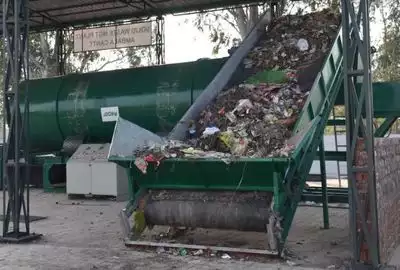In the contemporary landscape of rapid technological advancements and growing environmental concerns, the fusion of innovation and responsibility is imperative to address the escalating challenges in waste management. The paradigm shift towards sustainable synergy not only underscores the need for cutting-edge solutions but also emphasizes the ethical responsibility of managing waste in a manner that safeguards the planet for future generations. At the forefront of this evolution is the integration of innovative technologies into waste management services. From smart sensors to advanced data analytics, these technologies enable a more efficient and precise tracking of waste streams. Real-time monitoring facilitates better understanding of waste generation patterns, allowing for optimized collection routes and resource allocation. This not only reduces operational costs but also minimizes the environmental impact associated with inefficient waste management practices. One notable innovation in waste management is the advent of smart bins equipped with sensors and connected to a central monitoring system.

These bins can relay information about their fill levels, enabling waste management companies to schedule collections only when necessary. This not only optimizes the use of collection resources but also reduces fuel consumption and greenhouse gas emissions associated with unnecessary trips. Furthermore, the incorporation of artificial intelligence AI and machine learning ML algorithms enhances the predictive capabilities of waste management systems. By analyzing historical data, these technologies can forecast future waste generation trends, allowing for proactive planning and resource allocation. This predictive approach not only streamlines operations but also contributes to a more sustainable waste management ecosystem. However, the pursuit of innovation in waste management must be coupled with a profound sense of responsibility towards the environment and the communities affected. Sustainable synergy goes beyond technological advancements it involves a holistic approach that considers the social, economic, and environmental implications of waste management practices. One aspect of responsible waste management is the promotion of a circular economy. This entails minimizing waste by reusing, repurposing, and recycling materials to create a closed-loop system. Waste-to-energy technologies offer another avenue for responsible waste management, converting organic waste into energy while minimizing landfill usage.
Local waste management companies Community engagement is another crucial element in fostering sustainable synergy in waste management. Educating the public about proper waste disposal practices, the importance of recycling, and the impact of individual choices on the environment is pivotal. Collaborative efforts involving local communities, businesses, and government entities can create a collective consciousness towards responsible waste management. In conclusion, the fusion of innovation and responsibility in waste management services is indispensable for addressing the escalating challenges posed by increasing waste generation. The integration of cutting-edge technologies enhances efficiency, reduces environmental impact, and paves the way for a more sustainable future. However, this innovation must be tempered with a deep sense of responsibility that encompasses ethical considerations, community engagement, and a commitment to the principles of a circular economy. Sustainable synergy in waste management is not just a technological imperative it is a moral obligation to safeguard the planet for generations to come.
